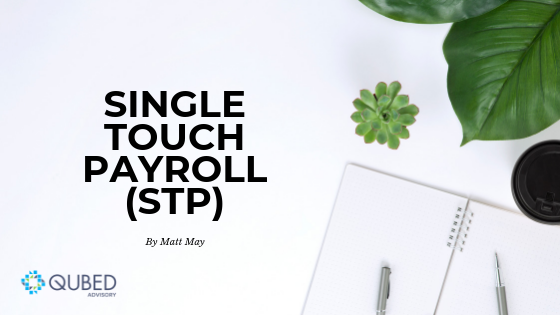Single Touch Payroll (STP) is a government initiative that changes the way we report payroll transactions to the Australian Taxation Office. It has been touted as the biggest change to small business reporting since the introduction of GST!
When do need to be ready for STP?
From July 1, 2019 all employing businesses need to commence reporting. Businesses employing 20 or more staff were required to commence from July 1, 2018 however many have utilised extensions granted to the software providers as they prepared their software.
What does it involve?
STP involves remitting employee payment information to the ATO via your accounting software on completion of a payroll cycle. The Tax Office will have access to information such as gross payments, tax withheld and super contributions close to real time rather than waiting the year to tick over.
Is my software compliant?
Generally speaking, all cloud based Australian Payroll and Accounting applications and most of the larger package-based accounting software providers will be compliant. Employers with between 1-4 employees will have concessions around lodgement so there is an understanding that not everyone needs or wants an accounting system that may do more than they need it to. Contact your software provider to confirm they are ready. If they are ready, you can get ready!
What do you need to do?
If you are comfortable navigating your software, the essential tasks are:
- Firstly, Reconcile your payroll to ensure your key payroll general ledger accounts balance to the key payroll reports. It’s important to get this right before you move in to STP
- Ensure your employee card files are complete and up to date
- Register your software with the Australian Tax Office
- Commence processing STP Payroll transactions and remit via your chosen accounting software.
- Speak to your employees about the pending changes. Moving forward payment summaries will not be issued. Employees will obtain their information via their mygov account
The above changes to your software will make amending pay runs very difficult. If you have remitted a payroll transaction and discovered a mistake that requires correction, this will generally need to be rectified in a future pay run.
Will this affect your Business?
If you employ staff, STP will affect you. If you generally run a tight ship, have a compliant accounting system and pay your obligations on time, STP will add some additional complexity around processing, but paying Wages, PAYG and Super will not change.
If your employee obligations are not up to date, the ATO will now be responding in a much swifter fashion as they will be able to data-match lodged payroll transactions against payments. STP is designed to tighten the noose around those that are not compliant with their Employee obligations. The ATO is planning to implement some harsh penalties for non-compliance such as potentially disallowing deductions for payroll transactions not remitted via STP.
In almost every case, a business’s biggest asset is its employees, so it makes sense to look after your employees and their entitlements.
With STP rapidly approaching, if this is not on your radar, contact your Accountant or Advisor and they will be able to steer you in the right direction. Alternatively we have a team at Qubed Advisory dedicated to rolling out STP to our clients and we would be happy to help.
